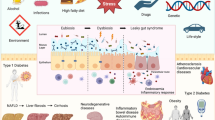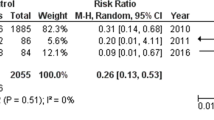Abstract
It is generally agreed that mucosal ischemia of the gastrointestinal tract is one of the major consequences of the low-flow state, be it due to blood loss, fluid loss, or sepsis. In the present paper, arguments are presented in favor of the hypothesis that stress-induced mucosal injury which tends to occur preferentially in the proximal stomach, duodenum, and terminal ileum results from a mucosal energy deficit severe enough to cause cell death.
Résumé
On admet en général que l'ischémie des muqueuses digestives est une des conséquences les plus importantes des états de bas débit circulatoire, qu'ils soient dus à des pertes de sang ou de liquide ou à des infections. Certains arguments, que nous présentons dans cet article, suggèrent que les lésions muqueuses de stress, qui se développent surtout dans le fundus gastrique, dans le duodénum et dans l'iléon terminal, résultent d'un déficit d'énergie au niveau de la muqueuse, responsable de la mort cellulaire.
Similar content being viewed by others
References
Priebe, H.J., Skillman, J.J., Bushnell, L.S., Long, P.C., Silen, W.: Antacid versus cimetidine in preventing acute gastrointestinal bleeding. A randomized trial in 75 critically ill patients. N. Engl. J. Med.302:426, 1980
Lescher, T.J., Teegarden, D.K., Pruitt, B.A.: The changing spectrum of major gastrointestinal complications in burned patients. Presented at the 27th Congress of the Société Internationale de Chirurgie, Kyoto, Japan, September 5–8, 1977
Kivilaakso, E., Silen, W.: Pathogenesis of experimental gastric-mucosal injury. N. Engl. J. Med.301:364, 1979
Skillman, J.J., Gould, S.A., Chung, R.S.K., Silen, W.: The gastric mucosal barrier: clinical and experimental studies in critically ill and normal man and in the experimental animal. Ann. Surg.172:564, 1970
Menguy, R., Masters, Y.F.: Mechanism of stress ulcer: influence of hypovolemic shock on energy metabolism in the gastric mucosa. Gastroenterology66:46, 1974
Menguy, R., Masters, Y.F.: Mechanism of stress ulcer. II: Differences between the antrum, corpus, and fundus with respect to the effects of complete ischemia on gastric mucosal energy metabolism. Gastroenterology66:509, 1974
Menguy, R., Masters, Y.F.: Mechanism of stress ulcer. III: Effects of hemorrhagic shock on energy metabolism in the mucosa of the antrum, corpus and fundus of the rabbit stomach. Gastroeneterology66:1168, 1974
Menguy, R., Masters, Y.F.: Mechanism of stress ulcer. IV: Influence of fasting on the tolerance of gastric mucosal energy metabolism to ischemia and on the incidence of stress ulceration. Gastroenterology66:1177, 1974
Menguy, R., Masters, Y.F.: Mechanism of stress ulcer: influence of alpha-adrenergic blockade on stress ulceration and gastric mucosal energy metabolism. Dig. Dis. Sci.23:493, 1978
Edelman, I.S.: Thyroid thermogenesis. N. Engl. J. Med.290:1303, 1974
Author information
Authors and Affiliations
Additional information
Supported in part by United States Public Health Service Grant No. GM-24514.
Rights and permissions
About this article
Cite this article
Menguy, R. Role of gastric mucosal energy metabolism in the etiology of stress ulceration. World J. Surg. 5, 175–179 (1981). https://doi.org/10.1007/BF01658282
Issue Date:
DOI: https://doi.org/10.1007/BF01658282




